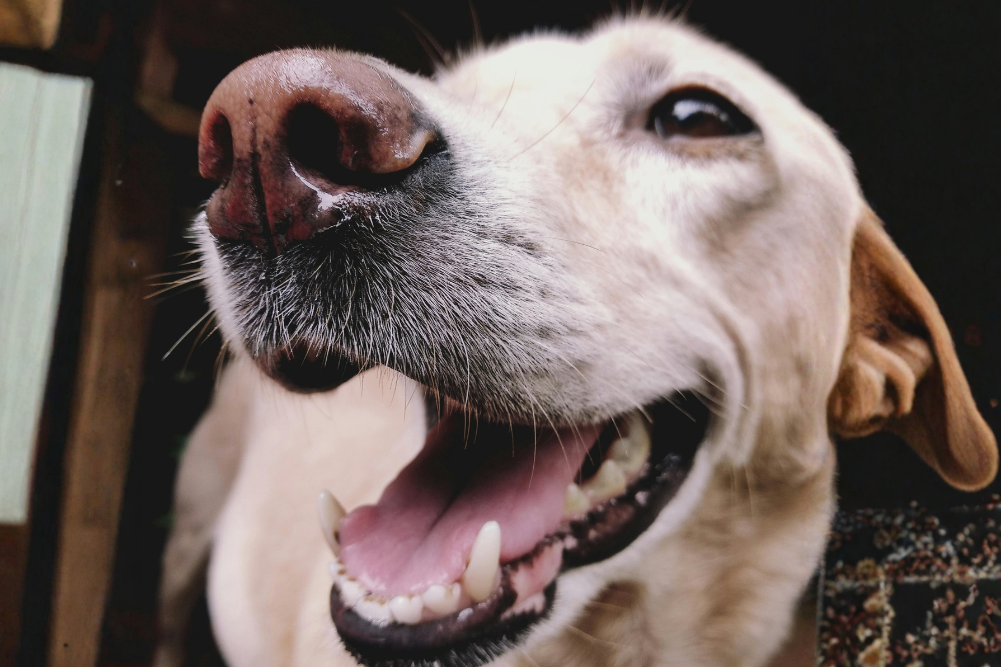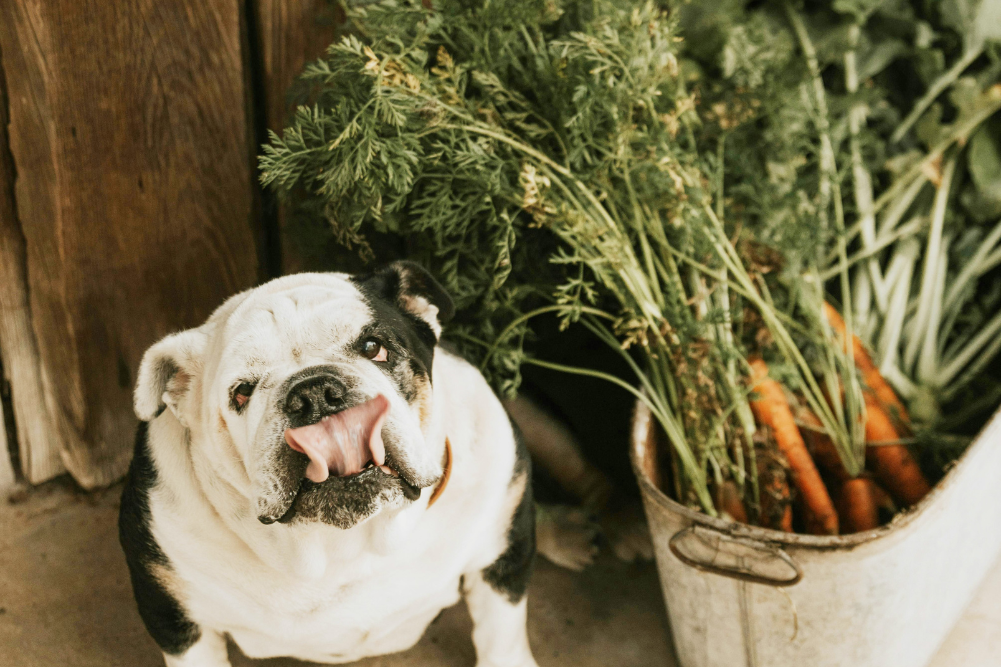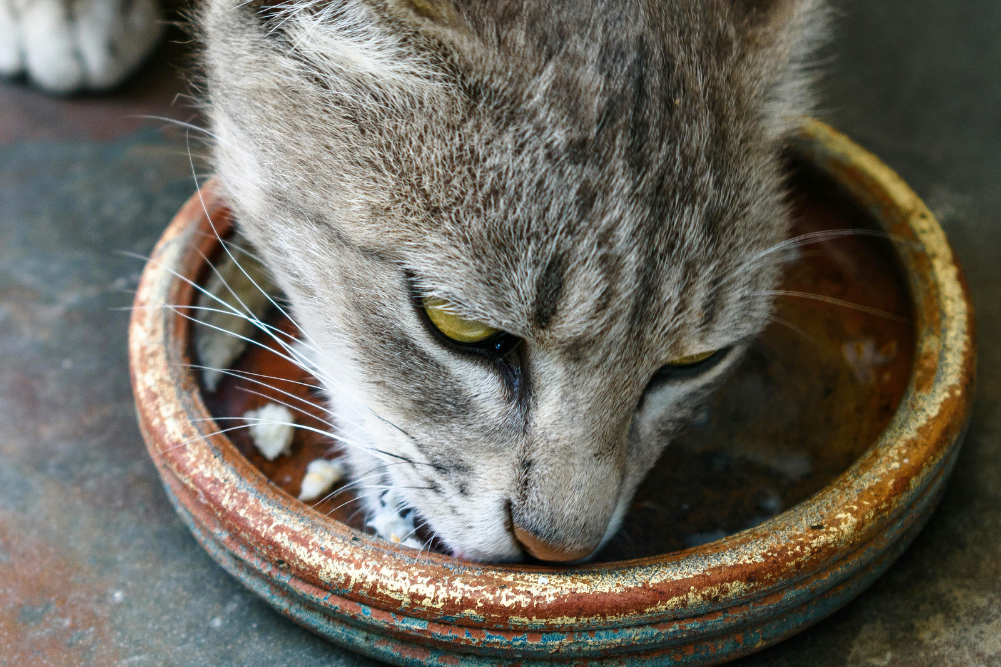Herbal medicine for pets
Dispensing herbs to patients is part of everyday routine in an integrative veterinary practice. One of the most frequent questions we are asked is how to get these supplements into pets. I know when I take herbs I can either swallow a tablet or capsule with a glass of water or mix my TCM herbs with some fresh juice. Dosing dogs and cats (and horses and cows and rabbits and birds) can be more challenging.
Herbs can taste bad. Many of our patients may be suffering from poor appetite, which can make mixing with food less desirable. After many years of trial and error, and some patients requiring us to stretch our creativity, I have compiled some strategies that may help owners treat their pets with the herbs and supplements they have been prescribed. Please always inform your local vet if you are using herbs on your pet.
Herbs for domestic animals can be in the form of fresh garden herbs (in small amounts), dried herbs, teas made from herbs, powdered herbs or concentrated dried herbal extracts in powdered or tablet forms, and liquid herbal tinctures in alcohol or glycetracts. All of these can be mixed into food.
It often helps to start off slowly with a small pinch or a drop and gradually increase the dose until you are giving the prescribed amount. Even if you can’t give the entire dose, often only a small amount of herb is required to effect a change. If this doesn’t work, try one of the following ideas.
For some pets, chicken flavoured baby food (so long as there is no onion) or canned cat food is such a novelty that they will take the herbs mixed into these. Other yummy options include cream cheese, a small amount of anchovy paste, low-fat yoghurt, ground liver or some cooked mashed pumpkin with a small amount of grated cheese mixed through. Raw chicken necks or wings can be coated in TCM powdered herbs. Check with your vet first in case your pet has special dietary needs.
If your pet’s appetite is lacking, you will need to disguise the taste in stronger-smelling foods — tuna, sardines or other oily fish, or minced red meat. If your pet is unwell and their appetite is poor, don’t mix herbs in their regular meals if it stops them eating. Instead, give the herbs in a separate food treat.
Powdered herbs may be mixed into small “pills” of butter or yoghurt, then frozen to increase firmness. It may be easier in some cases to administer the powdered or liquid herbs by mixing them into a liquid that is to be gently and slowly administered by syringe. Substances that have been recommended include meat or chicken broth (homemade, no-salt, low-fat), springwater from tinned tuna, water flavoured with soaked liver treats or a small amount of their usual meal blended into a smoothie. One vet I have talked to uses liver frappé. She donates a blender to the pet and uses organic raw or cooked liver and perhaps some cream or milk. Calculate the dose of herb in the volume of frappé to be administered over a 24-hour period. You can also pour the smoothie, frappé, broth or blended food containing herbs over their meal.
You can take advantage of your cat’s cleanliness by mixing the herb in a hairball gel or Nutrigel, cream cheese or anchovy paste and smearing it on the cat’s paws. Another strategy that may work for cats is using TCM herbs in tea-pill form. However, if you are not deft at tableting, the small ball-bearing-like pellets will scamper across the floor.
Liquid herbal extracts may not be accepted in any form by some animals. In this case, you can try to place the drops into a gelcap using the dropper provided. If herb capsules must be administered, they often go down more easily if one end is covered in butter. Be sure to administer water or broth afterward to ensure that the capsule passes quickly from the oesophagus to the stomach.
When giving liquid herbal tinctures by mouth, always dilute them (preferably with something sweet-tasting). Some herbal tinctures, such as echinacea, may cause gagging and so are better mixed with food.
Sometimes, herbs in liquid alcohol tinctures are better tolerated if diluted in just-off-the-boil water to remove the alcohol taste. Add the required dose into an egg cup and mix with one tablespoon of hot water. Allow to cool then mix with food. Another option is to pour the dose into a shallow pan and use low heat for about 15 minutes.
Medicating horses and farm animals
Horses, cows, sheep and goats are herbivores, used to eating many different plant materials. They usually accept herbs mixed in their grain and pellet rations. If that doesn’t work, apple sauce, molasses or frozen concentrated fruit juices can be effective vehicles. Herbs can be mixed in a small amount of wheatgerm oil to top-dress the food. Horses may also be dosed with herbal mashes: add to some bran or oats, using a little apple juice as a sweetener.
Rabbits and exotics
Rabbits can be medicated by grinding herbs into their pellets with a coffee grinder. Mix dried herbs with good-quality honey. For rabbits, you can load bananas or vegetable mash, or organic vegetable-based baby food, with herbs. Liquid herbs can be diluted and given orally with a dropper.
Strawberry jam or organic peanut butter is effective in disguising the taste before administration to rodents. For guinea pigs, mix with pureed vegetables or organic vegetable baby-food (with no onions).
Birds
Birds, especially parrots, seem to accept liquid extracts when dropped onto a biscuit. Birds can have their food pellets rolled in the herbs or may eat loaded treat balls made from moistened bird crumbles and herb.
Your veterinary herbalist may also recommend other routes of administration, such as by enema. This is especially appropriate for vomiting animals. This is something your vet or nurse can do and may be able to teach you to do.
Herbs may also be given topically in creams or ointments. These can be used for skin ailments and may also be used for some types of skin lumps or for sore joints. Your vet will advise you to distract your pet for 10 minutes with a walk after application, or maybe a short-term dressing to prevent your pet from licking these off.
Herb doses for domestic animals are prescribed by a veterinary herbalist with an understanding of the herb combinations, any potential interaction with other medications and the patient’s illness and other factors. Side-effects are rare, but if you notice anything unusual while your pet is on herbs, even just a small softening of bowel movements or worsening of signs, you should stop the herbs and inform your vet as soon as you can.
Karen Goldrick is a holistic veterinarian at All Natural Vet Care, Russell Lea, Sydney, NSW, Australia. T: +61 2 9712 5844 W: naturalvet.com.au








